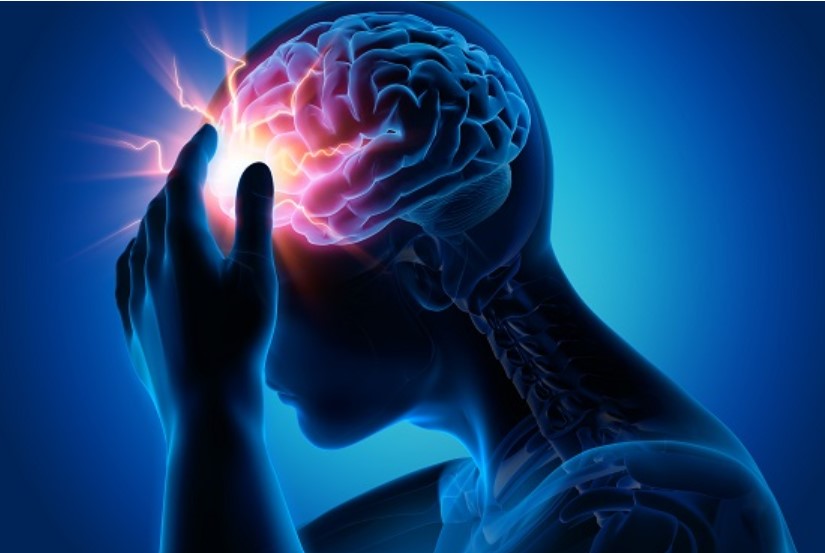Epilepsy: Causes, Symptoms, and Treatment Options

What is Epilepsy?
Epilepsy is a neurological disorder characterized by recurring, unprovoked seizures. A seizure occurs when there is a sudden surge of electrical activity in the brain, causing temporary disturbances in communication between brain cells. Epilepsy affects people of all ages and can vary in severity, frequency, and type. While some people with epilepsy have infrequent and mild seizures, others may experience frequent and severe seizures that impact their daily lives.
Causes of Epilepsy
In many cases, the cause of epilepsy is unknown, but several factors can contribute to its development:
- Genetics: Certain types of epilepsy are linked to specific genes, and a family history of epilepsy can increase the likelihood of developing it.
- Head injuries: Trauma to the brain from accidents, falls, or other incidents can lead to epilepsy.
- Brain conditions: Stroke, brain tumors, or infections like meningitis can damage brain tissue, increasing the risk of seizures.
- Developmental disorders: Conditions such as autism and neurodevelopmental disorders are sometimes associated with epilepsy.
- Prenatal injury: Brain damage before birth, often due to infection or oxygen deficiency, may lead to epilepsy later in life.
Symptoms of Epilepsy
The primary symptom of epilepsy is recurring seizures, which vary in type and intensity. Common types of seizures include:
- Generalized seizures: These affect both sides of the brain and include types such as tonic-clonic (formerly called grand mal) seizures, which involve loss of consciousness, muscle stiffness, and convulsions.
- Focal (partial) seizures: These begin in one specific part of the brain and may cause physical symptoms like twitching or sensory changes without loss of consciousness, or more complex symptoms that impair awareness.
Other symptoms of seizures may include:
- Confusion or “blank staring” during the episode
- Sudden, uncontrollable jerking movements in the arms and legs
- Temporary loss of awareness or memory of the event
- Changes in sensation, including visual or auditory hallucinations
Diagnosis of Epilepsy
Diagnosing epilepsy involves a detailed medical history and tests to determine the type of seizures. Some common diagnostic tests include:
- Electroencephalogram (EEG): This test measures electrical activity in the brain and can show patterns typical of epilepsy.
- MRI or CT scans: Brain imaging can help identify abnormalities, such as tumors or structural issues, that may be causing seizures.
- Blood tests: These can help rule out other potential causes of seizures, like infections or chemical imbalances.
Treatment and Management
- Medications: Anti-seizure or antiepileptic drugs are the main treatment for epilepsy and can effectively control seizures for many people. Finding the right medication may take time and adjustments.
- Surgery: In cases where medications are not effective, surgery to remove the part of the brain causing seizures may be an option, particularly if the seizures are localized.
- Vagus nerve stimulation (VNS): A small device implanted in the chest sends regular electrical impulses to the brain via the vagus nerve, which can reduce seizure frequency.
- Ketogenic diet: A high-fat, low-carbohydrate diet, known as the ketogenic diet, has shown effectiveness in reducing seizures in some children with epilepsy who do not respond to medications.
- Lifestyle management: Managing stress, maintaining a regular sleep schedule, avoiding alcohol, and recognizing seizure triggers can help reduce the likelihood of seizures.
Living with Epilepsy
Epilepsy can impact daily life, but many people live full and active lives with proper treatment and support. Learning to identify seizure triggers, following a medication routine, and staying connected with medical professionals are essential steps. It is also important for individuals with epilepsy to educate those around them on how to respond during a seizure, promoting safety and support.
Future Research and Advances
Research on epilepsy continues to make strides in better understanding the causes of the condition and developing new treatments. Recent advances include responsive neurostimulation devices that detect and prevent seizures in real time, as well as gene therapy aimed at addressing specific genetic causes of epilepsy.
Conclusion
Epilepsy is a complex but manageable condition. With appropriate treatment, lifestyle modifications, and support, many people with epilepsy achieve seizure control and lead fulfilling lives. Ongoing research brings hope for better treatments and improved quality of life for individuals living with epilepsy.
4o
